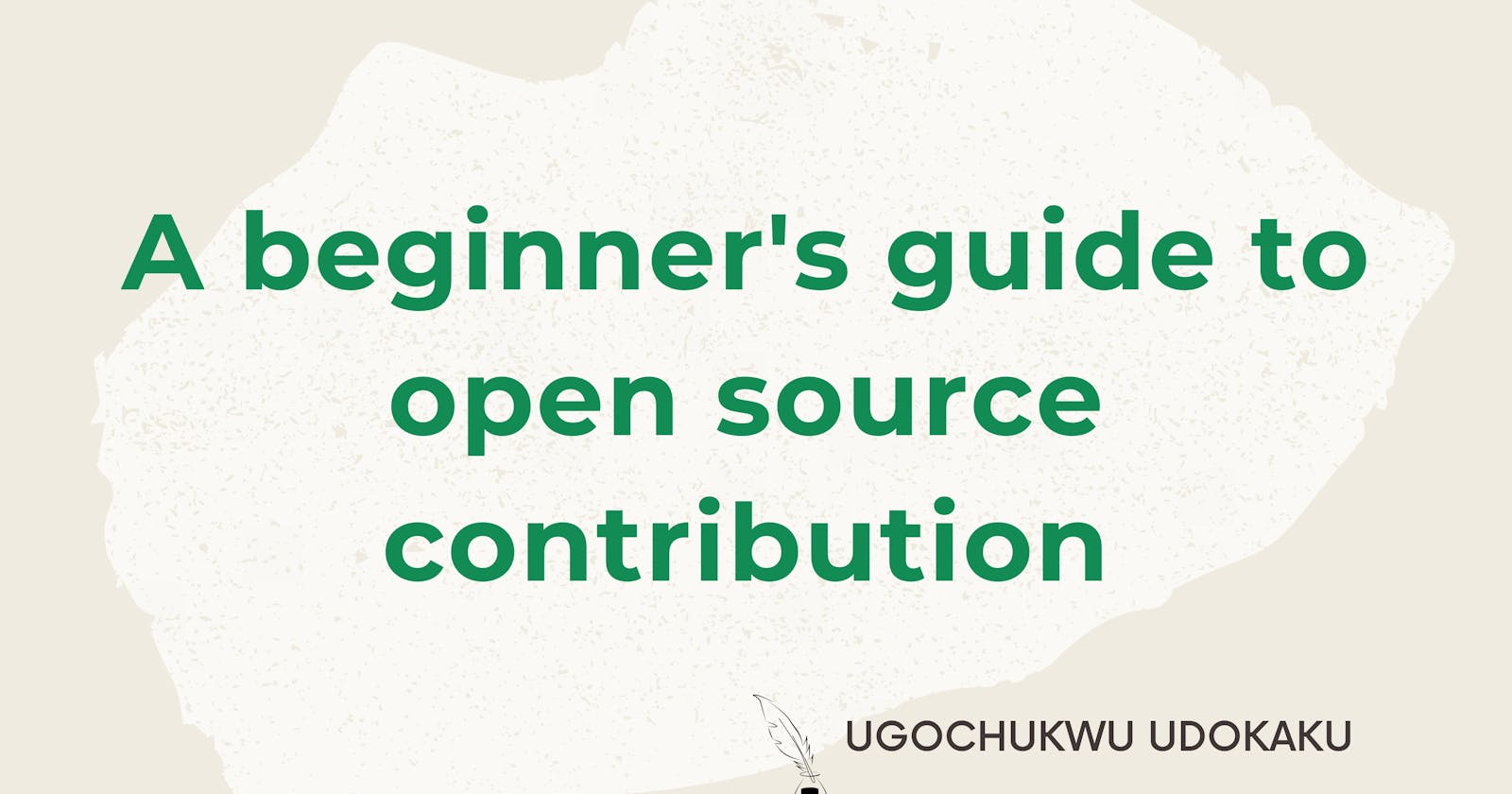Hi, welcome to my blog post on getting started with open source contributions. Getting started with open source for me was quite mystifying . I had to read a lot but still needed a guide. I decided that once I got a grasp of open source, I'd break it down in the simplest way any beginner could understand, this is the motivation behind this article. Let's get started.
What is Open source?
Open source is a software just like your bank apps, but one in which it's original source code(initial codes used in developing the software) is made public (open to access by the public), which you could contribute your quota to it's progress.
What then is Open Source Contribution?
Open source contribution is the collaboration of individuals from different areas of specialization in technology to the progress of a project.
Why should I contribute to open source projects?
It is normal have the thought,'If I am not getting paid why should I be concerned about contributing to open source', but contributing to open source;
- Exposes you to better easier and simpler codes
- Broadens your knowledge on implement of algorithms in more easier and neater.
- Helps you get comfortable with working with teams.
- Expands your knowledge on diverse languages, their incorporation with frameworks, and multiple ways of implementing different ideas in technology.
- Exposes to different areas in technology and broadens your knowledge.
- Builds a formidable network.
- You get recognized for your effort.
How can I contribute to open source?
Making open source contributions can be done in multiple ways, some of which include;
- Documentation: by either effecting changes to the projects documentation or drafting new documentations for projects.
- Coding: contributing to the project code base, this would require some programming skills.
- Reporting issues/bugs.
- Translating project documentations.
- Advocate for a project.
- Designs.
Before, you get started, I'd advice you pick a project, you would love to be contributing to and be intentional about your efforts, and also grow with the project, this helps build your leverage in no time. You don't want to go around without doubling your efforts. When I got started, I almost fell into this category, all thanks to my guide, Raphael Noriode, I was out of it sooner.
After picking a project what's next?
As a beginner to open source you would want to pick up issues with labels such as: good first issue , help wanted, beginners only, or newcomers only, While you familiarize with the project, read up the READ.md and CONTRIBUTING.md files.
Also, check out for links to the discussion forums for the project you are contributing to and join, this might either be a Slack or discord channel.
You don't need to be scared or feel intimidated, open source is a very welcoming space, make sure to ask questions when you need help. You can tag the project maintainers (people who oversee the project progress and continuity) or the person that reported an issue on your comments. Wait for a response from them, this might take time as they are really occupied with loads of jobs, so joining a discussion forum and asking your questions would be more preferable. If you choose to ask your questions in their discussion forums, make sure to reference the issue you are facing through a link.
Now you have chosen an issue to fix, the next thing to do is show an interest on the issue , this simply means leaving a comment on the issue indicating interest.
Once, this is done, you should await responses and if the issue is still available you would be assigned the issue. Once you get assigned the issue, now it's time to fork and clone the repository, to effect changes. This article here, Making my first commits is a good guide for this.
Thank you for reading this article, if you need any further guide on this, you can reach out to me on Twitter .
Your comments are very welcomed.
